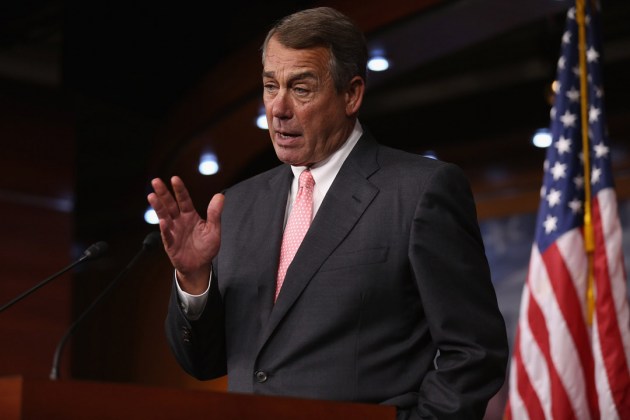John Boehner Resigns as Speaker of the House
On Friday, September 25, Speaker of the House, John Boehner relinquished his position on Capitol Hill. This seemingly sudden decision has stunned many across party lines despite the fact that Boehner considered leaving office at the end of last year. The Republican from Ohio explained that it was something he was certain of when he addressed the public by saying, “I decided today is the day I’m going to do this, simple as that.”
Boehner’s career in politics began when he was elected as a U.S. Congressman in 1990. He, along with seven other Republican newcomers known as The Gang of Seven, helped the Republican Party gain control of Congress in the 1994 elections by exposing corruption that was present when they took office. Over the span of his involvement in politics, Boehner has been known as an avid supporter of pro-business and small-government; however, after voting for the Troubled Asset Relief Program in 2008 which bailed out financial institutions, Boehner said that he regretted his decision. The effectiveness of TARP remains up for discussion as some believe it was one of the best decisions America made economically, opposed to the alternative, and some completely disagree. The ambiguity of its degree of success is also worth considering when assessing its impact.
As for Boehner’s career in more recent years, he took the position of Speaker of the House in 2011 when the Republicans outnumbered the Democrats in Congress. Boehner is known for taking pride in his humble roots as a bar owner’s son and the impressive economic mobility that he has experienced serves as hope for many in the possibility of achieving the American Dream. Over the years, Boehner has taken a firm stance against the politics of the current administration and has opposed policies like Don’t Ask, Don’t Tell, The Affordable Care Act, and Democratic Senate Majority Leader, Harry Reid’s, plan for balancing the budget in 2011. Boehner has come under fire from his own party because of his willingness to compromise in order to avoid a government shutdown. Tea Party members were especially outraged by his lack of an “all-or-nothing” hardline stance against liberal measures. When asked, on CBS Sunday Morning, to reflect on his critics a few days after resigning, Boehner said, “The Bible says, beware of false prophets, and there are people out there spreading noise about how much can get done. I mean, this whole idea that we were going to shut down the government to get rid of Obamacare in 2013, this plan never had chance.” Later, in the summer of 2014, Speaker Boehner announced that he would sue President Obama on the grounds of violation of power regarding the Affordable Care Act. These efforts, however were not successful as the Supreme Court ruled in favor of the President. Boehner was reelected to his position in the 2014 election in November, despite the lack of full support by the Republican Party. In 2015, Boehner invited the Prime Minister of Israel, Benjamin Netanyahu, to the U.S. in order to portray his disapproval for the way that current talks between the nations were going on the subject of terrorism in the Middle East. House Democratic Leader, Nancy Pelosi, denounced Boehner’s action deeming it inappropriate way of displaying his resistance to the policies being discussed. Boehner is also recognized for inviting the Pope to speak to Congress, a meaningful honor personal to Boehner, as he is a devout Catholic.
Many have speculated that this last act served as a way for Boehner to end his high-profile career as Speaker on a high note. During a photo-op with the Pope waving to large crowds from the balcony of the Capitol Building, an emotional Boehner can be seen standing behind the Pope. As this visit was just one day before Boehner would announce his resignation, many link the visit to a way for Boehner to leave Washington with a clear conscience and with a sense of closure. Republican Representative, Peter King of New York, said that he feels as though the Republicans need Boehner and that his resignation is like “throwing raw meat to some of these people” implying that Boehner served as a buffer to help control the extremity of some hardline Republicans. Republican Presidential Candidate and critic of Boehner, Ted Cruz, also alluded to the resignation as a success for the staunch conservatives of the Tea Party by saying that the voters of American had “scared” Boehner into resigning as Speaker. Fellow Republican John McCain took a different stance saying that he would miss Boehner and cited his resignation as a sign that the “Republicans need to stop fighting”. Democrats Nancy Pelosi and President Obama both recognized Boehner’s many years of public service and considered him a respectable contributor to the U.S. government. Boehner says that his motive for resignation lies in the commitment that he made to the American people and the Institution. All in all, Boehner’s commitment to the American people and his own personal beliefs of what is right and wrong, cannot be overlooked no matter one’s political affiliation.










